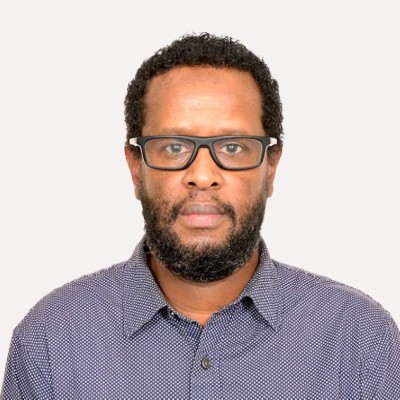M-PESA, the mobile money service that launched in Kenya in 2007, revolutionized financial services across Africa, offering a solution for millions of people without access to traditional banking. The service has since evolved into an indispensable part of life for many Africans. Eighteen years later, financial systems in the Western world, especially the U.S., are just now catching up to the innovation that M-PESA has provided for years. The analysis delves into how M-PESA evolved into a global leader in financial technology and how the U.S. and other developed markets are beginning to adopt similar solutions.
In Context: The Evolution of M-PESA
M-PESA, originally launched by Safaricom, Kenya's largest telecom provider, started as a simple solution to transfer money via mobile phones. Its success was born from the need to provide financial inclusion in a region where traditional banks were not accessible to many people. By allowing users to deposit, withdraw, transfer money, and even pay for goods and services using a mobile phone, M-PESA bypassed the need for a bank account. Over time, it expanded into a range of services, including savings, loans, and insurance.
Today, M-PESA has over 51 million active users across seven countries, including Kenya, Tanzania, and South Africa, generating billions in transactions daily. In Kenya alone, M-PESA facilitates transactions worth $28 billion annually, according to a report by the Central Bank of Kenya.
Go Deeper: The Western World Finally Catches On
Fast forward to 2025, and financial technology in the U.S. is only now starting to adopt systems that resemble M-PESA’s functionality. One notable example is the rise of apps like Venmo and Cash App, which offer peer-to-peer (P2P) payment services. These apps allow users to send money directly to others, pay for services, and make online purchases. Although these services are popular in the U.S., they lack the comprehensive ecosystem that M-PESA offers in Africa.
For instance, while Venmo and Cash App are primarily limited to P2P transactions, M-PESA allows for more complex functionalities such as paying for utilities, healthcare services, and school fees, and even offering small loans through M-Shwari, a mobile banking service linked to M-PESA. It has created an entire economy that transcends basic banking services.
In the U.S., financial inclusion is also a growing challenge, with nearly 5.4% of households remaining unbanked, according to the Federal Deposit Insurance Corporation (FDIC). Financial services apps like Venmo and Cash App are beginning to play a more significant role in addressing these gaps, especially with the growing demand for digital payments post-pandemic. However, the U.S. financial system still has a long way to go to reach the level of service integration that M-PESA has achieved in Africa.
What People Say: Industry Experts Weigh In
Experts in the fintech industry have lauded M-PESA as a game-changer for financial inclusion. The late Bob Collymore, Safaricom’s former CEO, once said, “M-PESA’s success shows how telecom operators can play a pivotal role in empowering people through mobile money, especially in underserved areas where traditional banking services are not viable.” M-PESA’s ability to evolve and serve the needs of its users, from small-scale entrepreneurs to large corporations, is often highlighted as a key reason for its long-lasting impact.
In contrast, fintech experts in the U.S. are beginning to see the limitations of existing systems. “Peer-to-peer payment apps like Venmo and Cash App have helped democratize digital payments, but they don’t solve the deeper issues of financial inclusion,” says Nicole Casperson, a fintech analyst. “The real breakthrough would be if we can emulate the success of M-PESA and provide comprehensive, accessible services to the unbanked and underbanked communities in America.”
Why It’s a Big Deal for Africa
M-PESA’s success in Africa demonstrates the power of technology to transform economies. By providing a reliable and secure way to manage money, it has empowered millions of people who were previously excluded from the financial system. For rural farmers, small business owners, and people living in remote areas, M-PESA has enabled them to participate in the formal economy and improve their livelihoods.
The broader impact on Africa’s economic development is significant. According to a study conducted by MIT, the availability of M-PESA lifted roughly 2% of Kenyan households out of extreme poverty between 2008 and 2014. The service has also led to a surge in entrepreneurship, as it provides small business owners with a fast and easy way to receive payments and manage finances.
Additionally, M-PESA’s model is now being replicated across other African countries. For example, Tanzania and Ghana have seen similar mobile money services emerge, contributing to the growth of their respective economies. In countries with limited infrastructure, mobile financial services like M-PESA have become the backbone of commerce, reducing reliance on cash and offering new economic opportunities.
Conclusion
Eighteen years after its inception, M-PESA remains a trailblazer in mobile financial services. While the Western world, particularly the U.S., is beginning to adopt similar technologies, the holistic ecosystem provided by M-PESA is unmatched in scope and impact. As countries worldwide grapple with the need for financial inclusion and digital transformation, M-PESA serves as a powerful case study of how technology can foster economic growth and improve lives. For Africa, M-PESA is not just a financial tool—it’s a revolutionary system that continues to drive development and set the standard for financial inclusion globally.
 By Guest |
By Guest | 